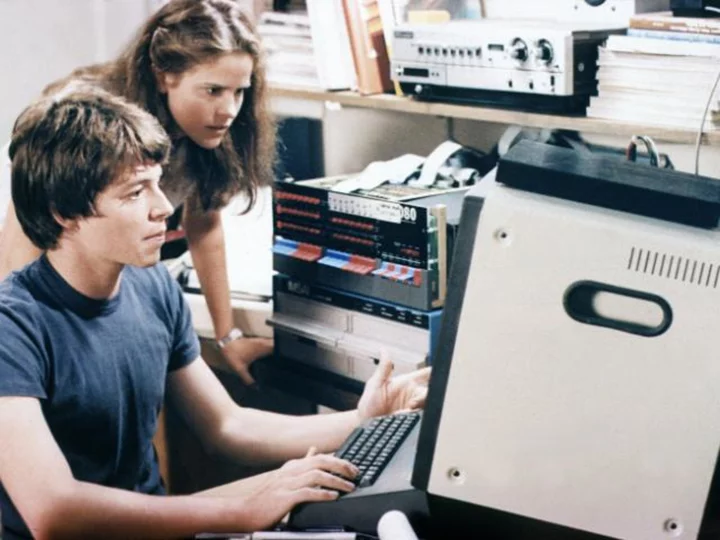Forty years ago this summer, a new movie floated the prospect of the world being destroyed by artificial intelligence run amok -- anticipating current anxieties about where the technology could potential lead -- a year before the "Terminator" introduced the futuristic threat known as Skynet.
At the time, "WarGames" spoke to another issue very much on the minds of movie-goers: The danger of nuclear annihilation during the Cold War, years before the Berlin Wall and Soviet regime fell. Those concerns also surfaced later that year in a more bracing, less fanciful manner when ABC aired the TV movie "The Day After," a broadcast that possessed such impact advertisers stayed away and the Reagan administration pressured the network not to run it.
"WarGames" starred a very young Matthew Broderick as the genius teenage computer hacker who inadvertently taps into the Pentagon's computer, challenging it to a "game" of "Global Thermonuclear War" that risks becoming all too real. Eventually, the computer comes to the realization that mutually assured destruction -- the deterrent logic of the time, appropriately abbreviated as MAD -- is a pointless exercise, saying in its eerie artificial voice, "A strange game. The only winning move is not to play."
That message resonated with those who worried about uneasy relationship between the US and Soviet Union at the time. Yet a recent re-viewing of the movie (which co-starred Ally Sheedy, two years before she gained additional teen immortality in "The Breakfast Club") makes its spin on AI seem even more pointed and timely -- the idea that in seeking an emotionally detached, people-free solution to a problem, we might sow the seeds for our own destruction.
The story gets set in motion because military brass fret about human operators exhibiting reluctance to launch nuclear strikes, despite what appear to be valid orders. The solution: A computer system that will remove them from the equation, championed by a character played by Dabney Coleman, the go-to bad-guy bureaucrat (see "9 to 5") of the era.
In the movie's payoff, Broderick's teenage hero outsmarts the computer by essentially tricking it into gaming out "global thermonuclear war" and recognizing its futility. The AI, in this case, is more sensible than its creators, as opposed to the more malevolent force featured in the new "Mission: Impossible" sequel.
Yet the apprehension that has entered the chat -- as underscored by recent congressional hearings regarding the perils associated with the technology -- is that future iterations of AI won't be so benevolent, and might actually be smarter than the resourceful teenagers that we can deploy to thwart them.
"WarGames" thus plays like a movie of its time while possessing aspects that presciently echo into ours, going beyond a plot that could easily have rendered it a Cold War relic. And the film fits nicely alongside others from the period that explored similar themes and enjoyed longer shelf lives, some via sequels, including the aforementioned "Terminator" and "Tron."
As Ryan Britt wrote recently at the Inverse, what really makes "WarGames" scary isn't that the computer is evil, but rather its potentially dire inability to recognize nuance the way a human can. "In 'WarGames,' the computer doesn't understand the difference between a game and real life," Britt noted.
From that perspective, it's a movie with more than one message, dealing with questions that aren't so much back, with apologies to the Terminator, but as reality has caught up with science fiction, simply continued to evolve.
"WarGames" is currently available to rent or buy via AMC+ and Amazon Prime Video.

